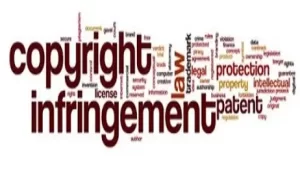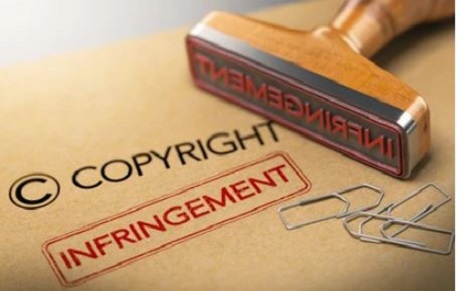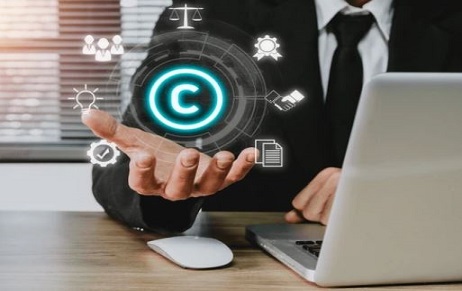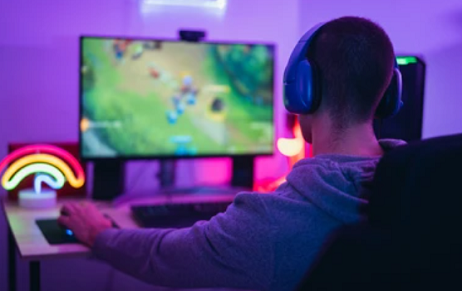Introduction In the contemporary digital environment, the problem of piracy has become one of the…
Infringement of Copyright and Remedies
Introduction
Intellectual property deals with any basic construction of human intelligence such as artistic, literary, technical, or scientific construction used in commerce. For a specific amount of time, intellectual property rights often grant the inventor the sole right to utilise his or her creation.
Copyright is one of the areas of IPR which ensures certain minimum safeguards of the rights of authors over their creations, thereby protecting and rewarding creativity.

The term “copyright” describes a group of legal privileges that belong to the person who first created an original work of authorship, such as a piece of literature, music, a film, or software. The owner of the copyright, or the person who created the original work, has a right over his work. He can provide others access to it or maintain complete ownership by forbidding others from reproducing or duplicating it.
Copyright has been defined in Section 14 of the Copyright Act, 1957 as an exclusive right to do or authorise the doing of any of the following acts in respect any significant portion of a work, namely:
1. Copy the work in any format and store it in any format.
2. Make public copies of the material available
3. Perform the work in Public
4. Create any type of cinematographic film in respect of the work
5. Translate the work
6. Make an adaptation of the work
Copyright Infringement
Copyright infringement refers to the unauthorised use of a work that is copyright protected. Therefore, unauthorised use of another person’s copyrighted work is a violation of that person’s rights, including the right to reproduce, distribute, exhibit, and perform that work.
Section 51 of the Copyright Act 1957 specifies when a copyright is infringed. According to Section 51 of the Act, states that a copyright violation occurs if:
• A person performs an act that only the copyright holder is authorised to do without the copyright holder’s consent.
• A person permits the use of the location for communication, selling, distributing, or exhibiting an infringing work unless he was ignorant of or had no reason to think that such consent will result in a copyright violation.
• A person brings in phoney reproductions of a work.
• A person who reproduces the work of another in any way without the copyright holder’s permission.
Copyright Issues
A variety of problems can occur with copyright. Some of them are discussed below:
• Plagiarism
Plagiarism refers to the practice of copying or taking someone else’s work and pretending or passing them off as ones own. People are allowed to refer to the work but the person who is using the copyrighted work has to give credit to the copyright holder.
• Ownership
The issue of ownership arises usually when a person works for an organisation. If a person is an employer, then the copyright of the material goes to the organisation but if a person is a freelancer, then he can enjoy the right over his material.
• Derivative work
Derivative work means using someone’s already existing work. It can be said as new version of already existing work. Like translating a book into another language, a person has to take license for it but if he doesn’t then he can be made liable for copyright infringement.
Remedies For Copyright Infringement
Under the Copyright Act, 1957 the copyright holder has two types of remedies:
Civil Remedies
Section 55 of the Copyright Act of 1957 addresses civil remedies for copyright infringement . The different civil remedies available are:
1) Interlocutory Injunctions
The granting of an interlocutory injunction is the most significant remedy. Most often, an application for interlocutory relief is submitted, and the matter rarely progresses past the interlocutory stage. A grant of an interlocutory injunction must satisfy three conditions: Firstly, a prima facie case. Second, there should be a balance between convenience. Finally, there must be an injury that is beyond repair.
2) Pecuniary Remedies
Three monetary remedies are also available to copyright owners under Sections 55 and 58 of the Copyright Act of 1957. First, a profit account that enables the owner to demand the amount of money equal to the profit obtained by illegal means. Second, compensating damages, which enable the owner of the copyright to recover losses he incurred as a result of the infringement. Third, conversion damages that are calculated based on the item’s worth.
3) Anton Pillar Orders
The ownership in Anton Pillar AG V. Manufacturing Processes gave rise to the name of the Anton pillar order. There are the following components in an Anton Pillar Order: First, a court must issue an injunction prohibiting the offender from damaging or stealing property. Second, a court order allows the plaintiff’s attorney to search the defendant’s property and remove any items they are keeping in safekeeping. Third, an order that the defendant be directed to reveal the names and addresses of suppliers and consumers.
4) Mareva Injunction
The Mareva injunction is used when the court thinks the defendant is attempting to stall or prevent the implementation of any judgement rendered against him. The court has the authority to order him to surrender all or any portion of his property to the court in order to satisfy the decision. This is stated in The Civil Procedure Code, 1908, Order XXXVIII, Rule 5.
5) Norwich Pharmacal Order
Typically, the Norwich Pharmacal Order is passed when a third party must be contacted for information.
Criminal Remedies
Under the Copyright Act, 1957 the following remedies are provided for infringement:
• Imprisonment up to 3 years but, not less than 6 months
• The maximum fine is 2,000, but it cannot be less than 50,000.
• Search and seizure of infringing goods
• Delivery of counterfeit goods to the owner of the copyright.
Conclusion
In conclusion, the goal of copyright is to uphold the creator’s legal rights while also offering financial incentives. The purview of copyright encompasses all literary or creative works, including computer software and databases. Although it is not essential to register a work in order to qualify for copyright protection, doing so is frequently encouraged because it can be used as evidence in court.
A person who violates the copyright of another person’s work is subject to both criminal and civil penalties. It is advised to produce original work and to not use someone’s copyrighted work without permission.
Author: Akash Jindal, A Student of Remedies for Copyright Infringement in India, in case of any queries please contact/write back to us via email to chhavi@khuranaandkhurana.com or at IIPRD.



